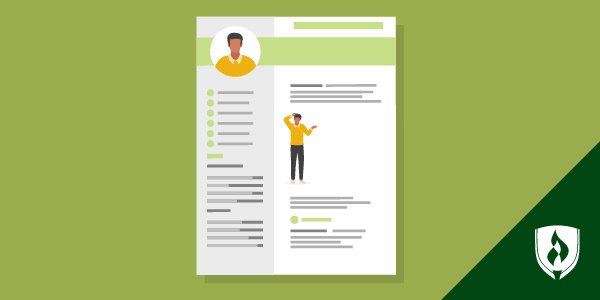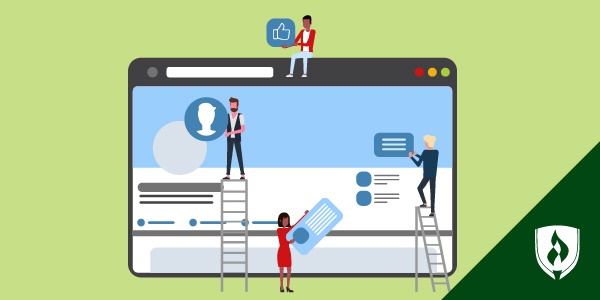In every job interview, it is crucial for the interviewee to obtain as much information as possible about the hiring organization. However, there is an unspoken truth about crossing the line from kosher to coarse. Interviewees need to be cautious of touchy subjects like salary and personal matters. The Career Placement Services team at Rasmussen College has provided a list of subjects to avoid during an initial interview:

1. Salary and Benefits
Asking about salary, benefits, vacation, and paid time off (PTO) on a first interview is a great way to turn the interviewer off. Inquiring about these areas of interest, no matter how curious you may be, is simply “putting the cart before the horse.” The initial interview is an opportunity for the employer to learn about the candidate’s strengths, skills, and potential to positively contribute to the organization. It is about what the candidate can do for the organization, so at this point in regards to salary, it is not about what the organization can do for the candidate.
It is understandable; however, that salary and benefits are significant decision-making factors when finding a position that is a good fit. Let’s face it….Everyone has a bottom line to attend to; therefore, learning about these features could be helpful during a second or third interview. Some candidates; however, choose to wait until an offer is made to find out about compensation. If an employer asks about compensation on an initial interview, it is best to provide a salary range that you are comfortable with. If you receive an offer and the offer falls in this range, the company will expect you to accept it. Be sure to do your research ahead of time so you are familiar with what similar positions pay.
2. Flexibility
In the ever changing world of work, many are hoping to benefit from the increasing amount of flexibility offered by scores of employers. With enhancements in technology, an increase in gas prices, and the importance of work-life balance, many of us no longer have to wait for the whistle to blow at the end of the day. Some employers are allowing employees to work from home, come in earlier in order to leave earlier, or have flex days during the week as long as they get in their respective hours and/or get the work done.
Although flexibility may be a characteristic on your ‘top ten’ list of work values, introducing this topic in a first-round interview is (again) getting ahead of yourself in an interview. You do not want to give the interviewer the impression that you are only interested in the position or the company based on the level of elasticity within your work week, so avoiding this topic until later interviews is your best bet.
3. Company Background
Receiving an interview from an organization is very exciting, because the recruiter or hiring manager obviously saw something about you that was appealing. Maybe you figure your skills and past work experience will get you the job, so you’re ready to sell yourself in an interview. When it comes time to ask questions to the interviewer, you ask, “What does your company do?” If you inquire about this, you might as well leave the interview immediately because most likely, you will not be getting the job offer.
Not doing your homework before an interview can cost you the position. As a candidate, it is your responsibility to research the organization you are interviewing with. It is crucial to show that you understand the company’s history, values, mission, organizational trends—and most importantly—their products and/or services. This investigation can be done on the company’s website, usually in the “about us” section. You have to consider why an employer would want to hire someone who did not take the time to learn anything about them. The hiring manager’s resounding answer is that there is no reason to want that candidate who has a halfhearted desire to learn about the company. So after the excitement of the news of your upcoming interview subsides, it’s time to get serious and start your research!
4. Personal Questions
Building rapport with your interviewer is an excellent tactic during the interview process. It is a way to display characteristics that many employers look for in a candidate, like strong communication skills, assertiveness, and a positive demeanor. It is great to let your personality show through, but be sure to err on the side of caution when it comes to getting personal. Although you may be trying to connect with your interviewer, asking personal questions may cross professional lines. Marital status, dependents, age, residence, and out-of-work activities are all subjects a candidate should avoid. Instead, consider more appropriate topics like common acquaintances within the field, professional association involvement, alma maters, or the weather! Remember, interviews are meant to be professional, not social, so don’t make it personal.
5. Interviewing your Interviewer
Many novice interviewees struggle with the end portion of the interview when the employer asks if they have any questions. This can be an awkward time because some candidates are nervous to ask questions, some just want the interview to be over, and some simply do not have any questions they want to ask.
The last of the three is the worst in the eyes of the interviewer. Not having any questions shows a lack of interest in the company and the position. There is so much about the job and the organization that you have yet to learn, so the question portion is an excellent opportunity to gain information that will allow you to decide if the opportunity is in alliance with your interests and skills. Always prepare a list of questions to ask the interviewer, and consider doubling it, as some of your questions may get answered throughout the interview. Two great resources to find questions to ask your hiring manager can be found at Monster.com® and Careerbuilder.com®.




